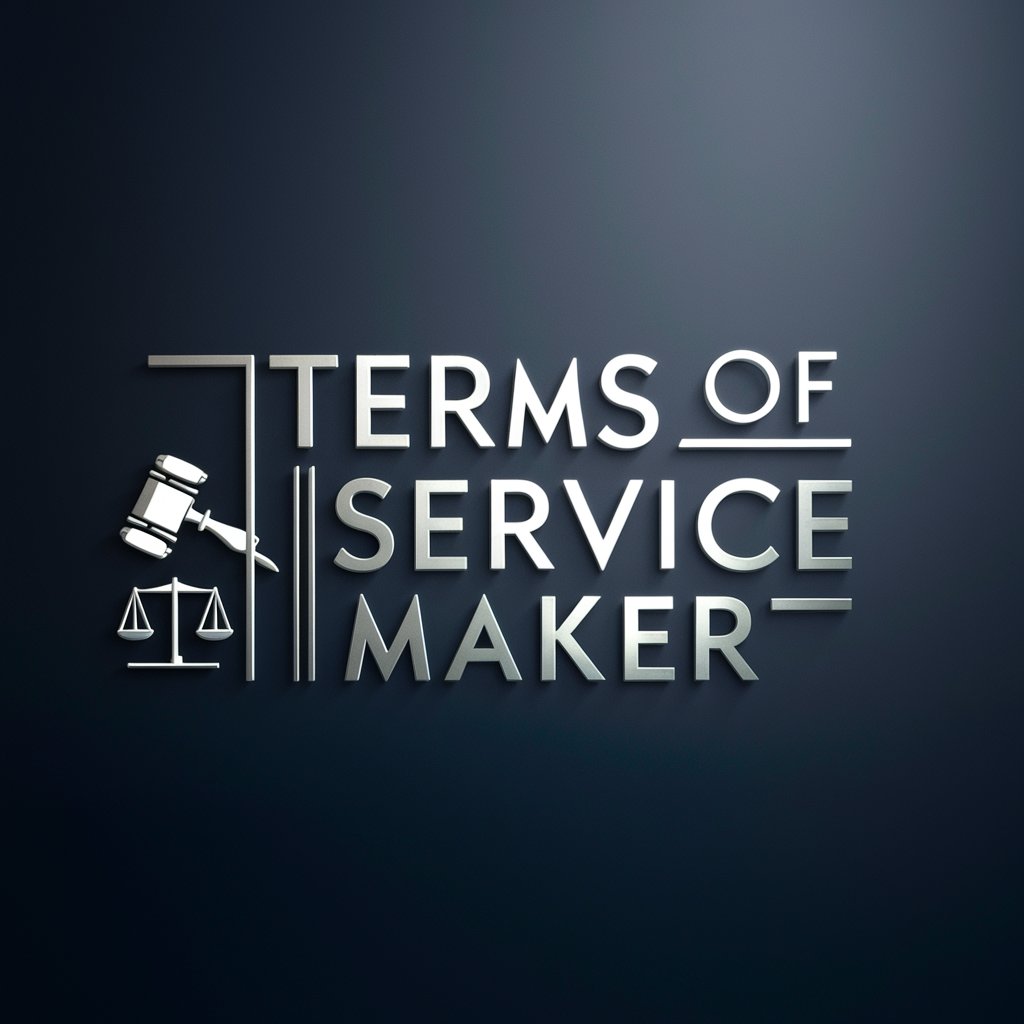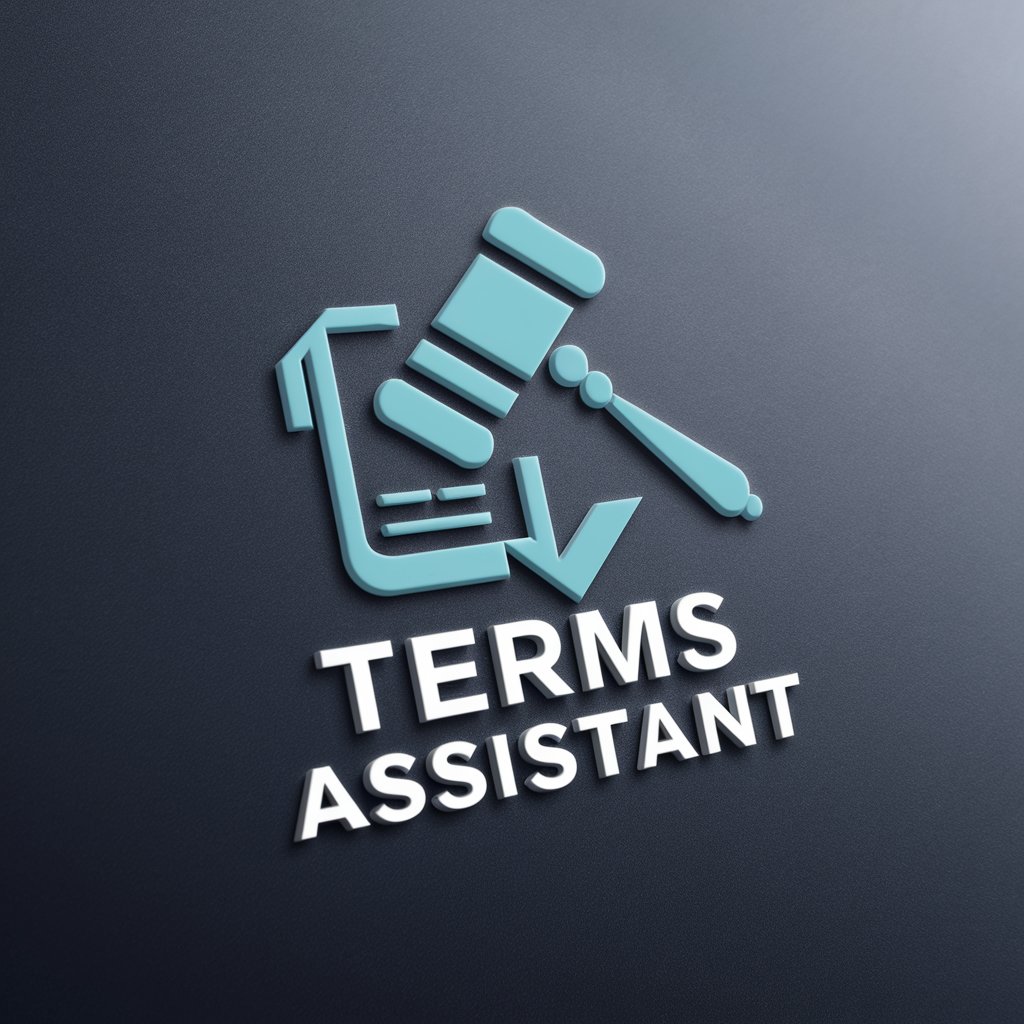4 GPTs for Privacy Policies Powered by AI for Free of 2025
AI GPTs for Privacy Policies refer to specialized applications of Generative Pre-trained Transformers designed to assist in creating, analyzing, and understanding privacy policies. These tools leverage AI's natural language processing capabilities to offer tailored solutions for drafting clear, compliant, and user-friendly privacy statements. They are crucial in navigating the complex landscape of data protection regulations, providing businesses and individuals with AI-driven assistance to ensure their privacy practices are transparent and up to standard.
Top 4 GPTs for Privacy Policies are: Privacy Policy Generator,Terms of Service Maker,Terms Assistant,👑 Data Privacy for Yoga Retreats & Wellness 👑
Privacy Policy Generator
Craft Compliant Privacy Policies with AI Ease

Terms of Service Maker
Streamline your terms with AI-powered precision

Terms Assistant
Craft Your Legal Terms with AI Precision

👑 Data Privacy for Yoga Retreats & Wellness 👑
Empowering Privacy in Wellness

Essential Attributes of AI GPTs in Privacy Policy Management
AI GPTs for Privacy Policies stand out for their adaptability and proficiency in handling a range of tasks from drafting simple privacy notices to analyzing complex legal documents. Key features include advanced language models capable of understanding and generating legal text, customization options for different jurisdictions, and compliance checks against global data protection laws. Specialized functionalities may also encompass interactive Q&A for policy clarification, integration with web development tools for seamless policy updates, and data analysis for privacy risk assessment.
Who Benefits from Privacy Policy AI Tools
The primary users of AI GPTs for Privacy Policies span from legal novices, such as small business owners and app developers, to legal professionals and data protection officers. These tools democratize access to complex legal knowledge, enabling those without a background in law to generate and understand privacy policies. For developers and tech-savvy users, they offer APIs and customization options to tailor privacy solutions according to specific needs or integrate them into existing systems.
Try Our other AI GPTs tools for Free
Narrative Continuation
Discover how AI GPTs for Narrative Continuation revolutionize storytelling and content creation, offering tailored, intelligent solutions for engaging narrative development.
Clothing Recommendation
Discover personalized fashion with AI GPTs for Clothing Recommendation: your digital stylist for trend-aware, tailored clothing advice.
CSS Frameworks
Discover how AI GPTs for CSS Frameworks revolutionize web development with automated optimizations, tailored design suggestions, and accessible learning paths for all skill levels.
SQL Generation
Revolutionize your SQL query process with AI GPTs. These tools transform natural language into efficient SQL, catering to both novices and experts in data management.
Schema Queries
Discover how AI GPTs for Schema Queries transform data interaction, making complex schema queries accessible and efficient for all user levels.
Custom Listings
Discover how AI GPTs for Custom Listings revolutionize content creation with personalized, scalable solutions for e-commerce, real estate, and marketplaces.
Expanding Horizons with AI in Privacy Policy Creation
AI GPTs for Privacy Policies not only streamline the creation and analysis of privacy statements but also enhance user engagement through interactive features. They can be integrated into existing legal and compliance workflows, providing scalable solutions that grow with business needs. Their user-friendly interfaces and customizable options make them a versatile tool in various sectors, from tech startups to multinational corporations.
Frequently Asked Questions
What exactly are AI GPTs for Privacy Policies?
AI GPTs for Privacy Policies are AI-driven tools that specialize in creating, reviewing, and advising on privacy policies using natural language processing.
Can these tools ensure my privacy policy is legally compliant?
While AI GPTs can greatly assist in drafting policies aligned with best practices, final legal compliance should always be verified by a legal professional.
Do I need programming skills to use these GPT tools?
No, many of these tools are designed with user-friendly interfaces that require no coding skills, making them accessible to a wide audience.
Can AI GPTs adapt to different countries' privacy laws?
Yes, many of these tools offer customization options to align with specific legal requirements from various jurisdictions.
How do these tools handle updates in privacy legislation?
AI GPTs are often updated by their developers to reflect changes in privacy laws, ensuring that the generated policies remain compliant.
Can I customize the privacy policies generated by AI GPTs?
Yes, most tools offer options to customize and tailor the policies to fit your specific business needs and practices.
Are there any security concerns with using AI GPTs for Privacy Policies?
Reputable tools prioritize user data security, but it's important to review each tool's own privacy policy and security measures.
Can these tools also help in understanding existing privacy policies?
Yes, many AI GPT tools offer features to analyze and interpret the language in existing policies, making them easier to understand.